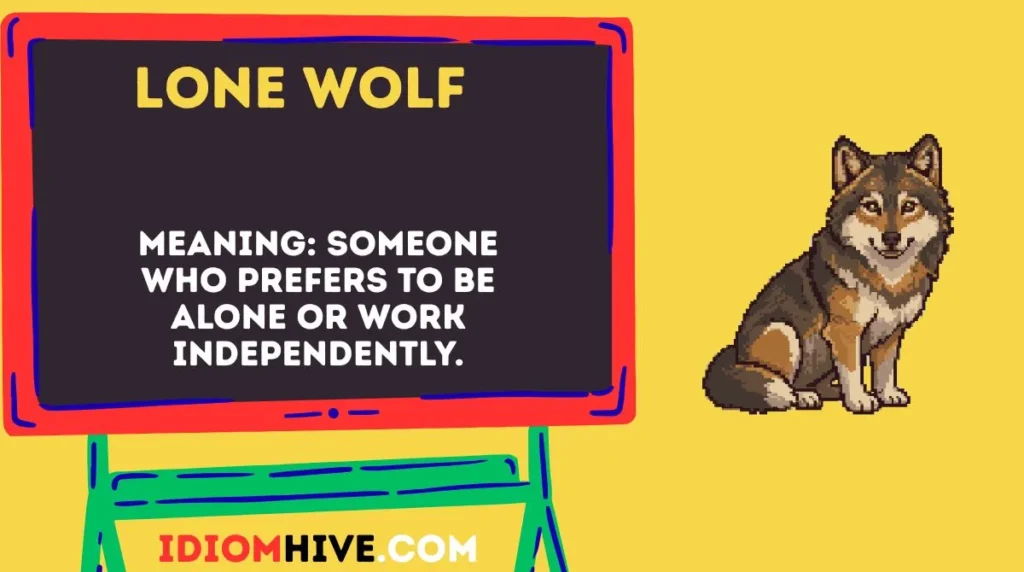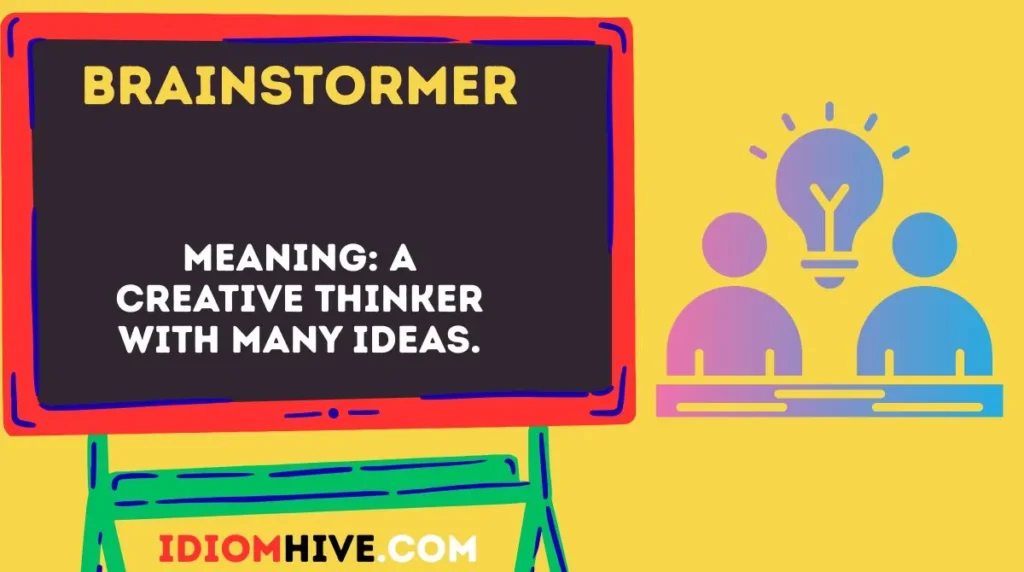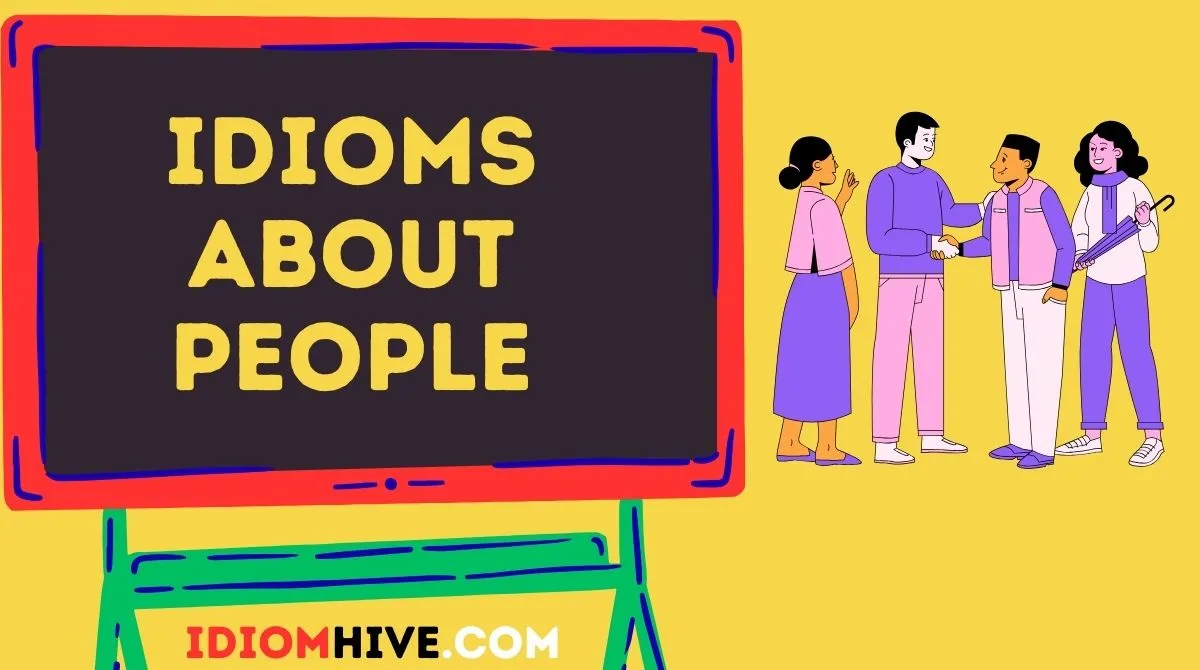Language is more than just words—it’s a way to connect with emotions, culture, and experiences. One of the most fascinating parts of English is idioms.
Idioms are phrases whose meanings are not always clear from the words themselves. Instead, they carry hidden meanings, often based on history, culture, or daily life.
When it comes to describing people, idioms play a huge role. People are at the center of every conversation, and idioms make it easier to describe personalities, behaviors, and situations in a colorful way.
Saying someone is a “social butterfly” paints a much clearer picture than simply saying they are friendly. Idioms about people make conversations lively, add humor, and help speakers sound more fluent and natural in English.
In this guide, you’ll explore over 35 idioms about people with their meanings, examples, and usage notes. Whether you’re learning English for fun, study, or work, these idioms will help you express yourself with confidence and creativity.
Did You Know?
The English language has over 25,000 idioms, many of which describe people. Idioms about people are some of the most popular worldwide because they are easy to relate to—after all, everyone knows someone who’s “the life of the party” or “a jack of all trades.”
Idioms for Describing Personality
Social Butterfly
Meaning: A very social person who enjoys being around people.
Example: Maria is such a social butterfly; she makes friends everywhere she goes.
Similar Idiom: Life of the party.
Note: Commonly used in informal, friendly conversations.
Lone Wolf

Meaning: Someone who prefers to be alone or work independently.
Example: Tom is a lone wolf; he doesn’t like group projects.
Similar Idiom: Keep to oneself.
Note: Often used in both formal and informal speech.
Cold Fish
Meaning: A person who seems unemotional or unfriendly.
Example: The manager is a cold fish; he rarely smiles at his team.
Similar Idiom: Hard as nails.
Note: Used in workplaces or casual talks to describe distant people.
Big-Hearted
Meaning: A very kind and generous person.
Example: She donated to charity again—she’s truly big-hearted.
Similar Idiom: Kind soul.
Note: Positive idiom used in daily conversations.
Busy Bee
Meaning: Someone who is always busy or active.
Example: Anna is a busy bee, always working on something new.
Similar Idiom: Be up and about.
Note: Popular in casual or workplace settings.
Armchair Critic
Meaning: Someone who criticizes without doing the actual work.
Example: Don’t be an armchair critic—try it before judging.
Similar Idiom: Backseat driver.
Note: Common in informal discussions.
Life of the Party
Meaning: The most entertaining person in a group.
Example: Everyone loves inviting John; he’s the life of the party.
Similar Idiom: Social butterfly.
Note: Very common in casual English.
Idioms for Describing Intelligence
Bright Spark
Meaning: A clever or intelligent person.
Example: She’s a bright spark in our team, always full of ideas.
Similar Idiom: Sharp as a tack.
Note: Used positively in formal and informal speech.
Slow on the Uptake
Meaning: Someone who takes time to understand things.
Example: He’s a bit slow on the uptake, so be patient with him.
Similar Idiom: Not the sharpest tool in the shed.
Note: Often informal and sometimes rude.
Walking Encyclopedia
Meaning: A very knowledgeable person.
Example: Ask Jim—he’s a walking encyclopedia about history.
Similar Idiom: Know-it-all.
Note: Can be positive or negative depending on tone.
Absent-Minded Professor
Meaning: An intelligent person who is forgetful.
Example: My dad is an absent-minded professor—he’s brilliant but forgets his keys daily.
Similar Idiom: Scatterbrain.
Note: Common in humorous contexts.
Brainstormer

Meaning: A creative thinker with many ideas.
Example: Sarah is our brainstormer; she always suggests fresh solutions.
Similar Idiom: Idea machine.
Note: Informal, mostly in workplaces.
Not the Sharpest Tool in the Shed
Meaning: A less intelligent or not very bright person.
Example: He’s kind, but not the sharpest tool in the shed.
Similar Idiom: Slow on the uptake.
Note: Informal and mildly rude.
Idioms for Behavior and Character
Goody Two-Shoes
Meaning: A person who always tries to be perfect or good.
Example: She never breaks rules—such a goody two-shoes.
Similar Idiom: Teacher’s pet.
Note: Informal, often used teasingly.
Jack of All Trades
Meaning: A person who can do many things but may not master any.
Example: He’s a jack of all trades—fixes cars, cooks, and plays music.
Similar Idiom: All-rounder.
Note: Often positive but can be neutral.
Loose Cannon
Meaning: An unpredictable or reckless person.
Example: Be careful with Mike—he’s a loose cannon at meetings.
Similar Idiom: Wild card.
Note: Used in both professional and casual contexts.
Party Pooper
Meaning: Someone who spoils the fun.
Example: Don’t be a party pooper—join the game with us.
Similar Idiom: Wet blanket.
Note: Informal, social situations.
People Person
Meaning: Someone who enjoys working and being with others.
Example: She’s a people person, perfect for customer service.
Similar Idiom: Social butterfly.
Note: Common in professional settings.
Creature of Habit
Meaning: Someone who sticks to routines.
Example: He always orders the same food—a creature of habit.
Similar Idiom: Set in one’s ways.
Note: Daily life, informal or neutral.
Two-Faced
Meaning: A person who is not sincere; pretends to be friendly but is not.
Example: Be careful—she’s two-faced and talks behind your back.
Similar Idiom: Double-dealer.
Note: Informal, negative tone.
Salt of the Earth
Meaning: A very good, honest, and reliable person.
Example: My grandmother is the salt of the earth.
Similar Idiom: Genuine person.
Note: Warm, positive usage in both formal and informal English.
Idioms for Status and Importance
Big Shot
Meaning: An important or powerful person.
Example: He thinks he’s a big shot after getting that promotion.
Similar Idiom: Bigwig.
Note: Common in business and casual speech.
Movers and Shakers
Meaning: Influential people who make changes happen.
Example: The conference was full of movers and shakers in the tech world.
Similar Idiom: Power players.
Note: Professional and formal settings.
Nobody’s Fool

Meaning: A smart person who can’t be easily tricked.
Example: She’s nobody’s fool; you can’t cheat her.
Similar Idiom: Street-smart.
Note: Common in both work and daily life.
Big Cheese
Meaning: An important person in an organization.
Example: The big cheese of the company is visiting tomorrow.
Similar Idiom: Top dog.
Note: Informal, humorous.
Ordinary Joe
Meaning: A normal, average person.
Example: He’s just an ordinary Joe, living a simple life.
Similar Idiom: Average Joe.
Note: Common in American English.
How to Use These Idioms in Daily Life
- In speaking: Use idioms to describe people more vividly. For example, instead of saying “He is very smart,” say “He’s a bright spark.”
- In writing: Idioms add flavor to essays, stories, or even professional emails. Use them wisely to keep your tone engaging.
- At work: Many idioms, like “people person” or “movers and shakers,” are useful in business contexts. They make your speech sound more natural and confident.
Common Mistakes Learners Make With Idioms
- Using idioms too literally:
❌ He is a social butterfly with real wings.
✔️ He is a social butterfly; he loves parties. - Mixing idioms incorrectly:
❌ He is the life of the wolf.
✔️ He is the life of the party. - Overusing idioms:
Using too many idioms in one sentence can confuse listeners. Keep it balanced.
FAQs
1. Why are idioms about people important?
Because they help you describe personality, behavior, and roles in a colorful way, making your English sound natural.
2. Can idioms be used in professional settings?
Yes, but choose wisely. Idioms like “people person” or “movers and shakers” are fine at work, but avoid very informal ones like “party pooper.”
3. Are idioms the same in British and American English?
Some are shared, but many differ. For example, “ordinary Joe” is American, while British English may use “average bloke.”
4. How can I remember idioms easily?
Connect them with real people you know. For example, if your friend is very social, think of them as a “social butterfly.”
5. Are idioms always positive?
No. Some idioms are positive (“salt of the earth”), while others can be negative (“two-faced”).
Conclusion
Idioms about people are a powerful way to describe personalities and behaviors in English. They add depth, humor, and creativity to conversations.
Instead of using plain descriptions, you can use these idioms to paint vivid pictures and express yourself more like a native speaker.
Whether you’re talking about a “busy bee” at work or a “social butterfly” at a party, idioms make communication fun and engaging. Keep practicing, and soon you’ll find yourself using them naturally in both speech and writing.










